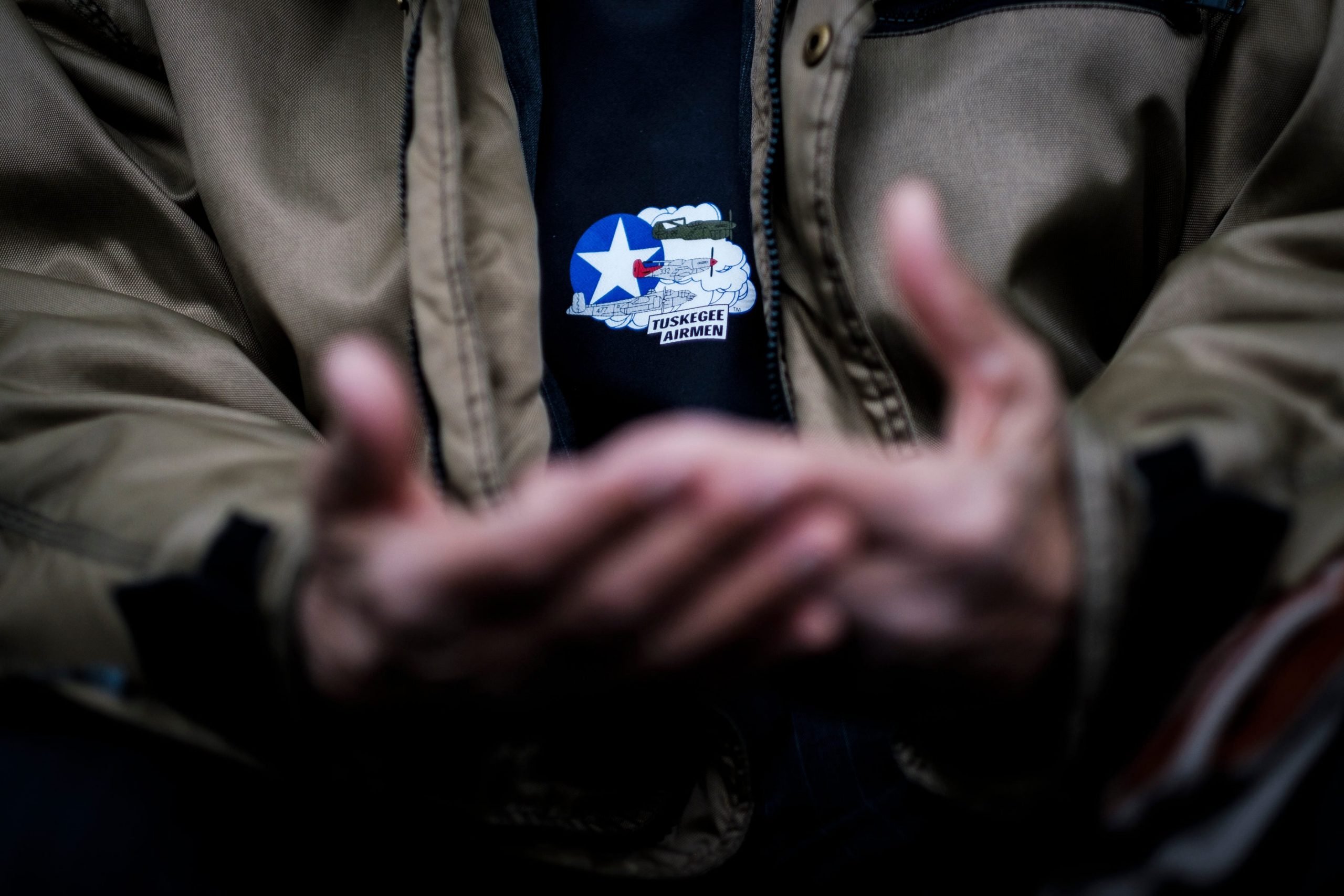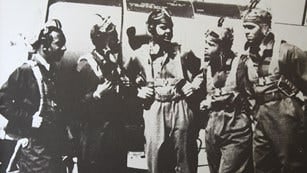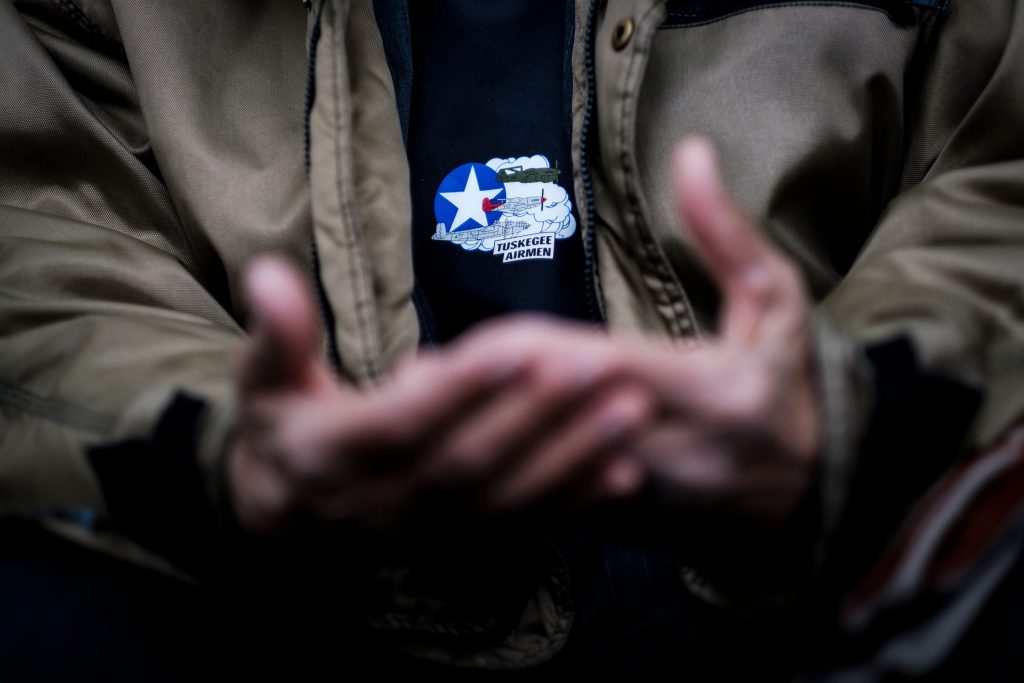
- More than 15,000 Black military personnel segregated in World War II were honored for Veterans Day.
- The honor is part of the military's effort to reconcile with a legacy of racism and discrimination.
- Nearly 400 Tuskegee airmen are still living. Celebrations for their service take place nationwide.
More than 15,000 African American military pilots, airmen and cooks who were segregated in World War II for Veterans Day, are receiving a special salute for Veterans Day.
Part of the Tuskegee Airmen, the all Black US Air Force unit fought in World War II between 1941-1946. This is the first time the unit is being recognized on Veterans Day by a top sitting officer, Lt. Gen. Gary Brito, the Army's top officer for personnel.
"They made it through obstacles that were in their way. It's very inspirational to me," Brito told USA Today. " So whether they were a cook or a parachute rigger – whatever they were doing to support this effort – it's very uplifting."
The honor is one of many, as the military takes steps to reconcile a legacy of racism and discrimination within its ranks. Retired and active service members say this commemoration is long overdue.
Brito sees diversity, equity and inclusion as part of the military's fabric
Brito, 57, who became the first Black commander of Fort Benning in 2018, is one of a handful of Black officers to ever rise to the top of any branch of the military.
The lieutenant general has been transparent about the military's legacy of racism and discrimination and has vowed to do more for diversity efforts within its ranks.
"We want to make sure that at some point in time we can talk about diversity, equity and inclusion without actually saying the word because it's just the way we do business,' Brito said in April.
Prior to 1941, Black pilots were barred from participating in the military when the Tuskegee Airmen became the first group of Black pilots to serve in the US Armed Forces. In total, more than a million African Americans served in the segregated units in World War II.
Lt. Gen. Brito has said that, along with his grandfather's service, the Tuskegee Airmen inspired him to join the military.
"In essence, they are very inspirational to me even after 30 years of service," he told USA Today. "Despite all the challenges that they may have had - prejudice, or racism or what have you - that they wanted to serve the country is something that you just can't help but look up to."

National Parks Service
The unit honored on Thursday, known as 332nd Expeditionary Operations Group, was tasked with escorting bomber planes on their 312 missions.
They flew more than 15,000 sorties, destroying at least 100 German aircraft in the war.
In 1944, more than 1000 pilots from the 332nd fighter group began to paint the tails of their planes red to help with distinctions in combat.
Many of the air force units throughout the war came up with unique ways to categorize their units. Because of the red paint, pilots in that fighter group publicly was named the "Red Tails."
But a University of Illinois African American studies professor, Sundiata Cha-Jua says they also referred to themselves as "the Lonely Eagles", in reference to the segregation they faced.
"These war heroes broke down barriers with their courage and determination to serve our country in World War II, and their ability to triumph over adversity remains a compelling and inspirational example to us all," LaVone Kay, spokesperson for the Commemorative Air Force's Red Tail Squadron told The Oklahoman last year.
Many Tuskegee Airmen continue to be honored outside of Veteran's Day

The Washington Post/Getty Images
The 2019 book, Soaring to Glory: A Tuskegee Airman's World War II Story , says about 400 of the Original Tuskegee Airmen were still alive at the time. Many are being showered with honors in celebrations across the country Thursday.
Of the Tuskegee Airmen that are still living, many say they hope their efforts inspire other African Americans to join the military ranks.
Val Archer, a Tuskegee Airmen, told students at an airmen aviation program in 2013 of "the importance of our role and what it means to people coming along after us, particularly the African-American men."
"Your potential is incredible - it's more than my generation ever dreamed of," Archer said.
This week, an African American flight crew from Scott Air Force Base in Alabama became the first all-Black crew to land a C-21 aircraft at Sharpe Field in Alabama, formerly Tuskegee Army Airfield.
Captains on board, Kyle Green and Johnny Frye gave a shout out to the Tuskegee Airmen just before Veterans Day thanking them for inspiring and paving the way for them.
"I think it's important because it's easy to forget," Frye told FOX 2. "We weren't living in those times and just to look at the history of what they went through."
